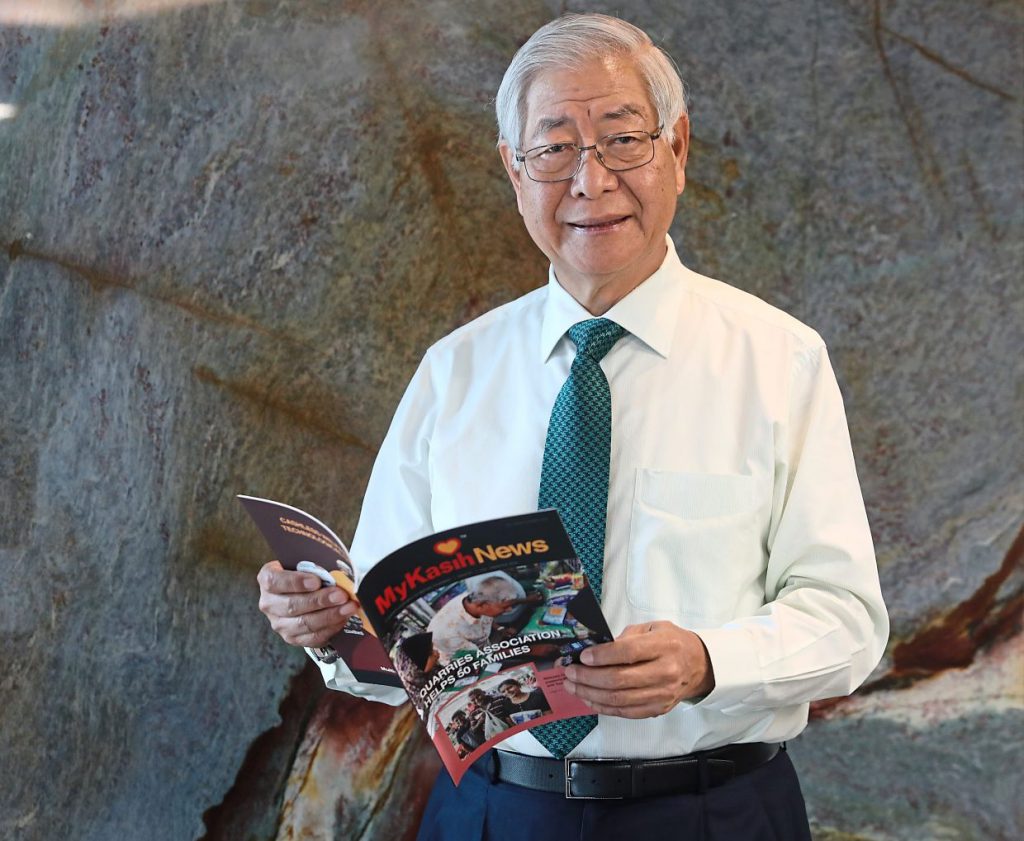
AS MALAYSIA moves towards becoming a cashless society, digital payments via e-wallet apps such as Boost, GrabPay and Touch ‘n Go have become more widely accepted.
In fact, with the Covid-19 pandemic that calls for hand sanitising, physical distancing and contactless exchange of money, such electronic transactions are fast becoming the norm.
To encourage Malaysians to adopt a cashless system, the government even gave one-off RM50 incentives to e-wallet users under its National Economic Recovery Plan.
But long before cashless transactions became the trend, private charity organisation MyKasih Foundation already had a food aid programme running on a cashless system back in 2009.
The programme utilises the proprietary chip technology of MyKad, which enables donations to be channelled in a secure, targeted and transparent manner, ensuring that it goes directly to the rightful beneficiaries via their MyKad accounts.
When the movement control order came into effect in March, many people lost their jobs and the B40 group was especially hit hard as they struggled to put food on the table.
Although NGOs and other aid organisations distributed care packages, they faced challenges in delivering aid to the needy due to travel limitations and physical distancing to minimise health risks.
MyKasih, through its unique welfare delivery system, managed to mobilise RM3mil in donor funds to targeted beneficiaries, supporting them with food aid.
Activated remotely, the nationwide cashless food aid programme allowed recipients to choose from 10 approved categories of food products, such as rice, noodles, cooking oil, eggs, bread, biscuits, beverages and canned food.
To prevent abuse of donor funds, the programme comes with a barcode scanning process that ensures only approved items are purchased.
With MyKasih Foundation’s extensive network of retail partners such as Mydin, Giant, The Store, Tesco, AEON, Econsave, TF Value Mart and Speedmart99, covering more than 200 stores nationwide, the food items can be distributed swiftly and efficiently.
Recipients choose for themselves the food items they need and purchase them only when they need it.
More importantly, food wastage is minimised and the health and safety risks to social workers and volunteers, who will otherwise have to procure, pack and deliver the aid to beneficiaries during the MCO period, are reduced.
There are also controls in place to track the funds in terms of how they are being used, with the necessary audit trails for governance.
Founded by Dialog Group Bhd executive chairman Tan Sri Dr Ngau Boon Keat and his wife Puan Sri Jean Ngau, MyKasih was established with the aim of assisting low-income families, regardless of race and religion, through food aid and education.
Dialog is a leading integrated technical services provider in the oil-and-gas and petrochemical industries.
“Sometimes, those who help you are not necessarily your relatives or your closest friends, ” said Boon Keat.
“When I went through difficult times while growing up, it was my kind neighbours who gave me food and extended a helping hand.
“This fuelled my desire to help the less fortunate and that was how MyKasih came about.
“In the last two months, MyKasih has also extended aid to 2,000 families in Sabah.
“The whole idea is not to only provide a crutch to the impoverished, but also to lend them a helping hand so that they can get out of their current situation and eventually manage on their own, ” he said.
“Corporations and NGOs can opt to use the MyKasih system, which is available to them at no cost.
“This is our way of contributing towards flattening the Covid-19 curve while continuing to serve communities in need, ” he added.
In 2008, MyKasih started out by extending help to 25 families in Selayang.
To date, the foundation has disbursed RM280mil worth of food aid to more than 300,000 low-income households nationwide, with the support of various organisations such as Dialog Group, Petronas, Mah Sing Foundation, Ambank Group and Khazanah along with more than 50 other collaborators.
Currently, the foundation is supporting 15,000 underprivileged families and students with food aid and educational assistance amounting to RM12mil.
It relies entirely on donations from the public and corporate bodies to fund its welfare programmes for the underprivileged.
Apart from its Love My Neighbourhood cashless food aid programme, MyKasih also runs a Love My School student bursary programme that allows students to pay for daily meals at the school canteen or learning essentials at the school bookstore via their MyKad-linked student smartcard.
To date, 5,100 Orang Asli pupils in 31 Orang Asli primary schools in Pahang, Perak, Kelantan, Selangor, Johor and Terengganu benefit from this programme.
Students are also supported with cashless bursaries and back-to-school aid while schools are equipped with computer labs and robotics for technology learning, aquaponics edible garden projects for nutrition and life skills education, as well as disbursement for extra-curricular activities like music and sports development initiatives such as football and rugby.
Organisations or companies keen to adopt MyKasih’s cashless welfare distribution platform may get more details via info@mykasih.com or visit www.mykasih.com
This article first appeared on The Star, 28/11/2020.



